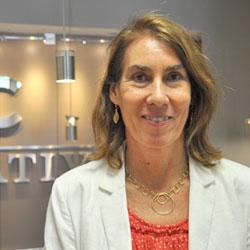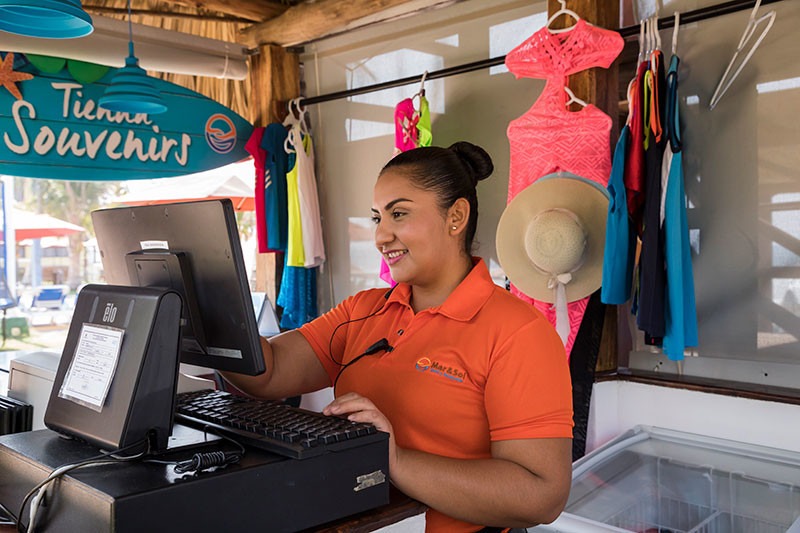[vc_row][vc_coluna][vc_column_text]
Soft Skills Dê um passo a frente para os jovens – dentro e fora do trabalho
P&UM: Clare Ignatowski Autores um novo relatório, “O que funciona no desenvolvimento de habilidades sociais para o emprego da juventude”
[/vc_column_text][/vc_coluna][/vc_row][vc_row][largura da coluna_vc=”2/3″][vc_column_text]Quando os jovens entram na força de trabalho, Somente habilidades técnicas ou educação não são suficientes para garantir seu sucesso. Eles também precisam das "habilidades sociais" que os ajudarão a se destacar no trabalho - e em outros aspectos de suas vidas.
O grupo de financiadores de jovens empregos, uma rede de aprendizado de over 20 financiadores do setor público e privado e organizações multi-laterais, incluindo o NÓS. Agência para o Desenvolvimento Internacional, O Fundação MasterCard, O Banco Interamericano de Desenvolvimento/MIF, e o Organização Internacional do Trabalho - encomendou um novo relatório, “O que funciona no desenvolvimento de habilidades sociais para o emprego da juventude” para construir uma compreensão mais coerente das habilidades sociais e como promovê -las nos jovens.

Clara Ignatowski, Ph.D., Conselheiro Técnico Sênior de Juventude e Sistemas Pensando na Creative Associates International, autor do relatório, que foi lançado em setembro. 30 no Cimeira Global de Oportunidades Económicas para a Juventude em Washington, DC.
Ignatowski diz que com o relatório, O grupo espera reunir financiadores, Organizações de desenvolvimento, Empresas e governos de países em torno da importância das habilidades sociais e construem uma terminologia comum para descrevê -los. O relatório também fornece recomendações sobre como avançar para que os jovens de todo o mundo possam adquirir qualidades e habilidades que os servirão ao longo de suas vidas.
Ignatowski compartilha alguns dos destaques do relatório, que pode ser lido na íntegra aqui.
Como definimos habilidades sociais?
Ignatowski: Soft Skills são uma mistura de habilidades, atitudes, comportamentos, Qualidades e mentalidades pessoais que os indivíduos usam para ter sucesso em diferentes contextos no trabalho e na vida. Trata -se de habilidades que são importantes para navegar e tomar decisões e trabalhar bem com outras pessoas para fazer o trabalho e ter sucesso na vida.
As cinco habilidades que foram encontradas com mais evidências para o sucesso da força de trabalho dos jovens são:
- Autoconceito positivo
- Auto-controle
- Comunicação
- Habilidades sociais
- Pensamento de ordem superior, Qual é a solução de problemas, pensamento crítico e tomada de decisão
Essas habilidades são importantes não apenas para o sucesso da força de trabalho, mas para o sucesso em muitos domínios diferentes da vida.
Por que há necessidade de uma melhor compreensão e coesão em torno das habilidades sociais em desenvolvimento?
Ignatowski: Eu acho que porque essas habilidades são tão fundamentais, Eles meio que surgem em todos os pontos diferentes na vida de um jovem. Portanto, é melhor se eles forem incorporados à educação infantil, Se eles são praticados em famílias e depois integrados à educação acadêmica. E também eles são realmente críticos para a transição funcionar e o desempenho bem -sucedido no trabalho.
Também há um crescente crescendo de empregadores dizendo que essas habilidades são:
- Importante para a produtividade e
- Estão mais ausentes no mercado de trabalho.
Tão especialmente em contextos dos países em que há um muito tradicional, tipo de pedagogia e currículo centrados no professor que é rígido, É muito difícil para os jovens desenvolver essas habilidades. Mas ao mesmo tempo, Seus empregadores em potencial estão dizendo que essas são essas habilidades de que precisam.
Adicionalmente, Há evidências crescentes de que o autoconceito, senso de autoeficácia, Engajamento e capacidade de trabalhar bem com os outros são vitais para resistir ao extremismo violento e também para sobreviver em comunidades que têm muito crime e violência. Portanto, essas são habilidades importantes não apenas para conseguir um emprego e trabalhar, Mas por prosperar em circunstâncias difíceis.
Quais são as principais recomendações do relatório?
Ignatowski: Fazemos recomendações em cinco domínios diferentes, E há várias dimensões diferentes em cada. O primeiro é construir coerência em torno das habilidades sociais. Não estamos dizendo que as habilidades sociais são as únicas habilidades que os jovens precisam; Essas habilidades precisam ser integradas com habilidades técnicas e habilidades acadêmicas. Este relatório também fez um esforço para trazer coerência em torno da terminologia.
A segunda recomendação é sobre os esforços de reforma. Aquilo é, Mudando a mentalidade em todo o sistema - o sistema educacional e o sistema de força de trabalho, incluindo como os empregadores estão treinando e supervisionando os jovens, e como as famílias estão apoiando sua juventude. Então, estamos vendo a necessidade de criar um ciclo virtuoso com esses diferentes contextos que reforçam o desenvolvimento de habilidades sociais.
A terceira recomendação é em torno de parcerias essenciais. Isso envolve olhar para o lado da demanda e que tipo de habilidades que os empregadores dizem que precisam e trabalhando com eles no contexto do trabalho para ter oportunidades para os jovens desenvolverem habilidades sociais. Além disso, parcerias com organizações da sociedade civil, como conquistas juniores ou programas depois da escola, que estão realmente melhor situados e têm programação inovadora que suporta o desenvolvimento de habilidades sociais que os escalam geralmente significa parceria com sistemas formais de educação que procuram pedagogias mais ativas e inovadoras.
A quarta recomendação é melhorar a qualidade da educação. Isso significa investir na preparação de adultos, professores, Trabalhadores para jovens - qualquer adulto da comunidade que trabalha com jovens para entender essas habilidades e como melhor apoiar seu desenvolvimento em jovens.
E a área final é o domínio crítico de avaliação e avaliação, incluindo promover e investir em medidas mais rigorosas e consistentes de habilidades sociais. Tem sido muito difícil medir habilidades sociais, porque isso geralmente foi feito através de pesquisas de autorrelato, que não são muito relevantes ou consistentes. Podemos usar fontes de dados mais trianguladas e mais medidas baseadas em desempenho. Além disso, O foco não deve estar apenas no indivíduo, mas também nas práticas e culturas institucionais que cercam os jovens e que nutrem ou inibem o desenvolvimento de habilidades sociais.

Quais são suas esperanças em termos de desenvolvimento de habilidades sociais no futuro?
Ignatowski: Esperamos ir além de discutir sobre terminologia-habilidades sociais versus habilidades para a vida versus habilidades de leitura de trabalho, etc.. - e comece a harmonizar nossa terminologia e investir em poder desenvolver ferramentas de avaliação mais rigorosas para que possamos construir a base de evidências para o que funciona em habilidades sociais.
A integração do desenvolvimento de habilidades sociais nos sistemas gerais de ensino médio e de educação técnica e profissional também é crítica e faz parte da modernização dos sistemas de educação e treinamento para o século XXI do século XXI.
Este relatório é emitido por um grupo liderado por doadores, Mas os doadores estão muito cientes de que essas reformas vão se esforçar para muitos parceiros diferentes, incluindo famílias, sistemas educacionais, o setor privado, ONGs locais e internacionais, bem como governos e jovens locais. Basicamente, há um papel para todos. É um grande esforço.[/vc_column_text][/vc_coluna][largura da coluna_vc=”1/12″][/vc_coluna][largura da coluna_vc=”1/4″][vc_widget_sidebar barra lateral_id=”barra lateral primária”][/vc_coluna][/vc_row]